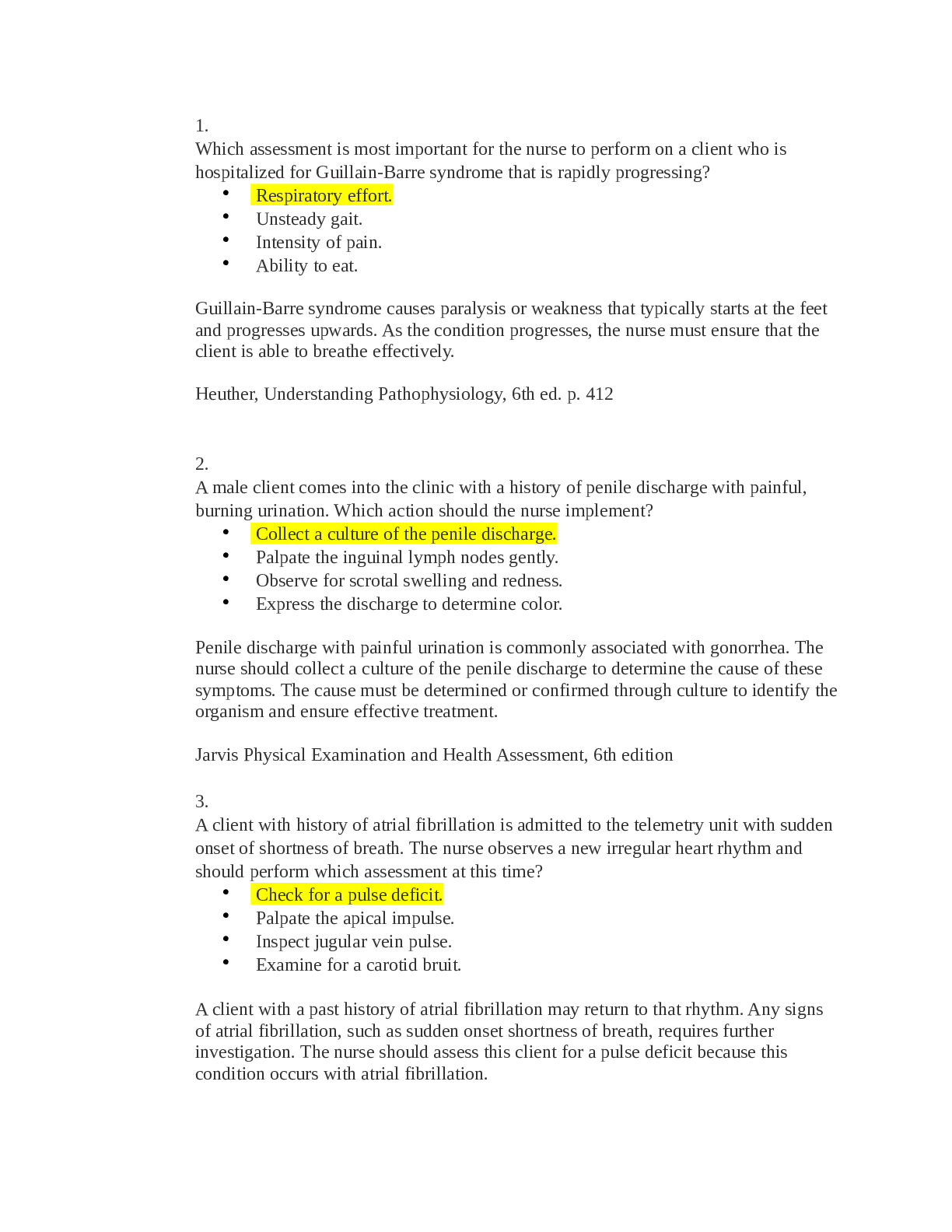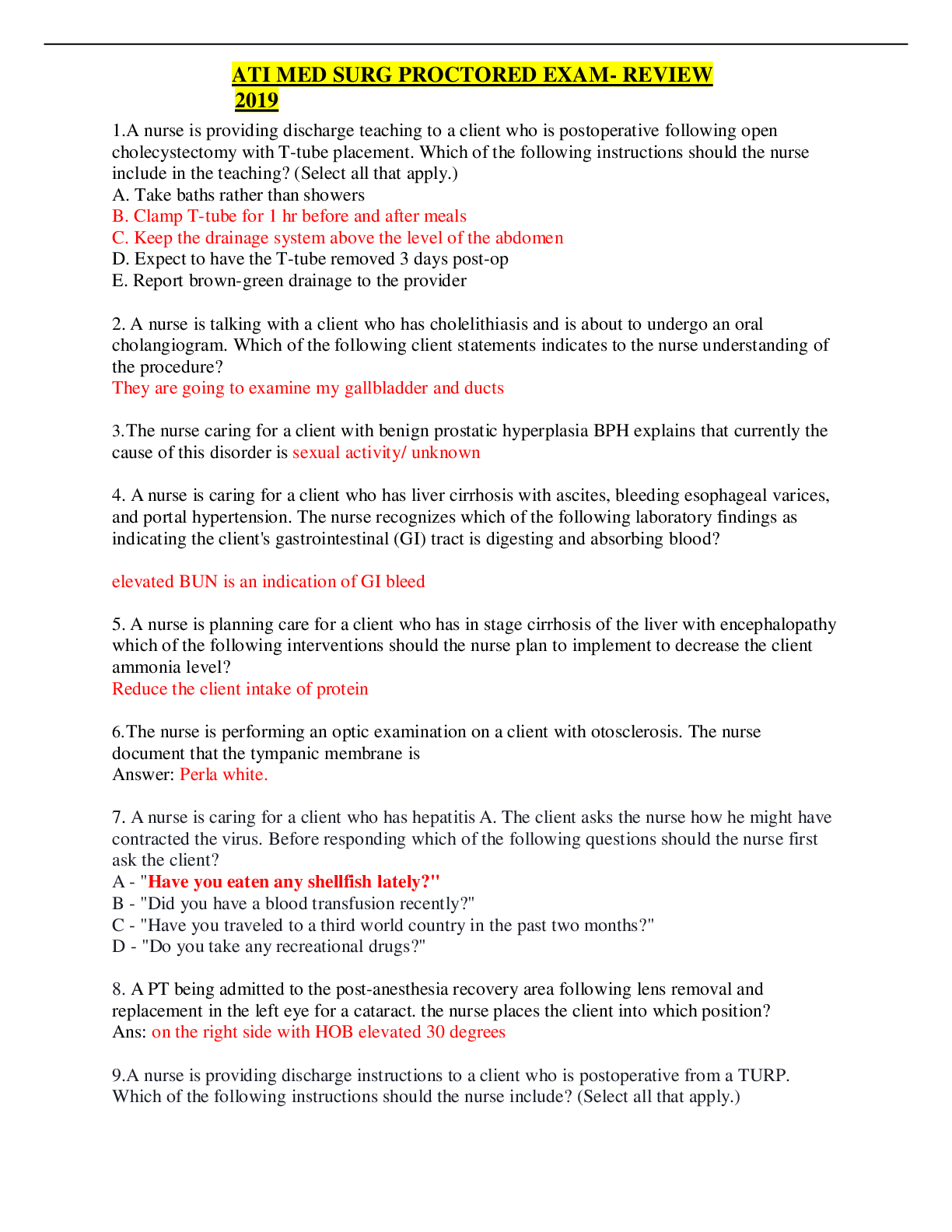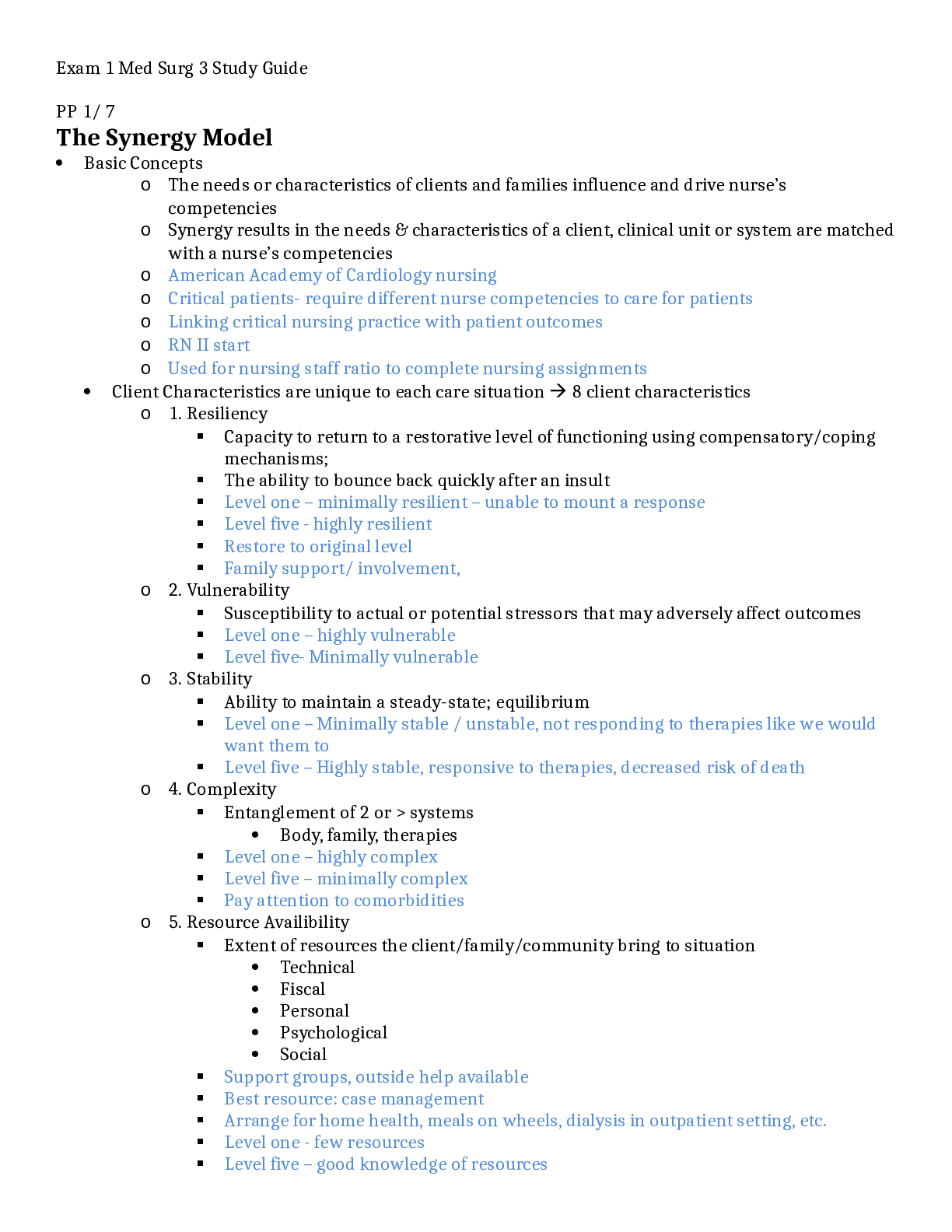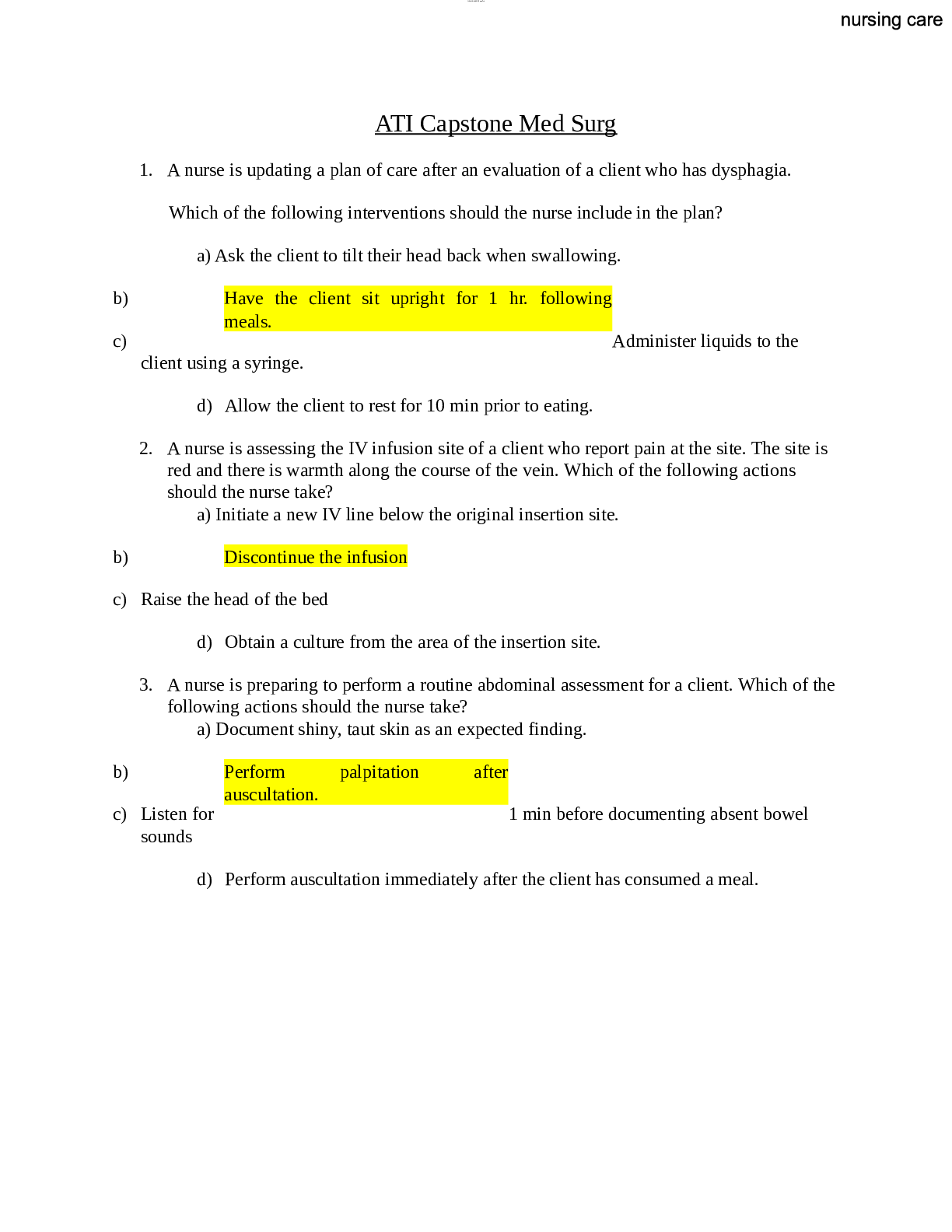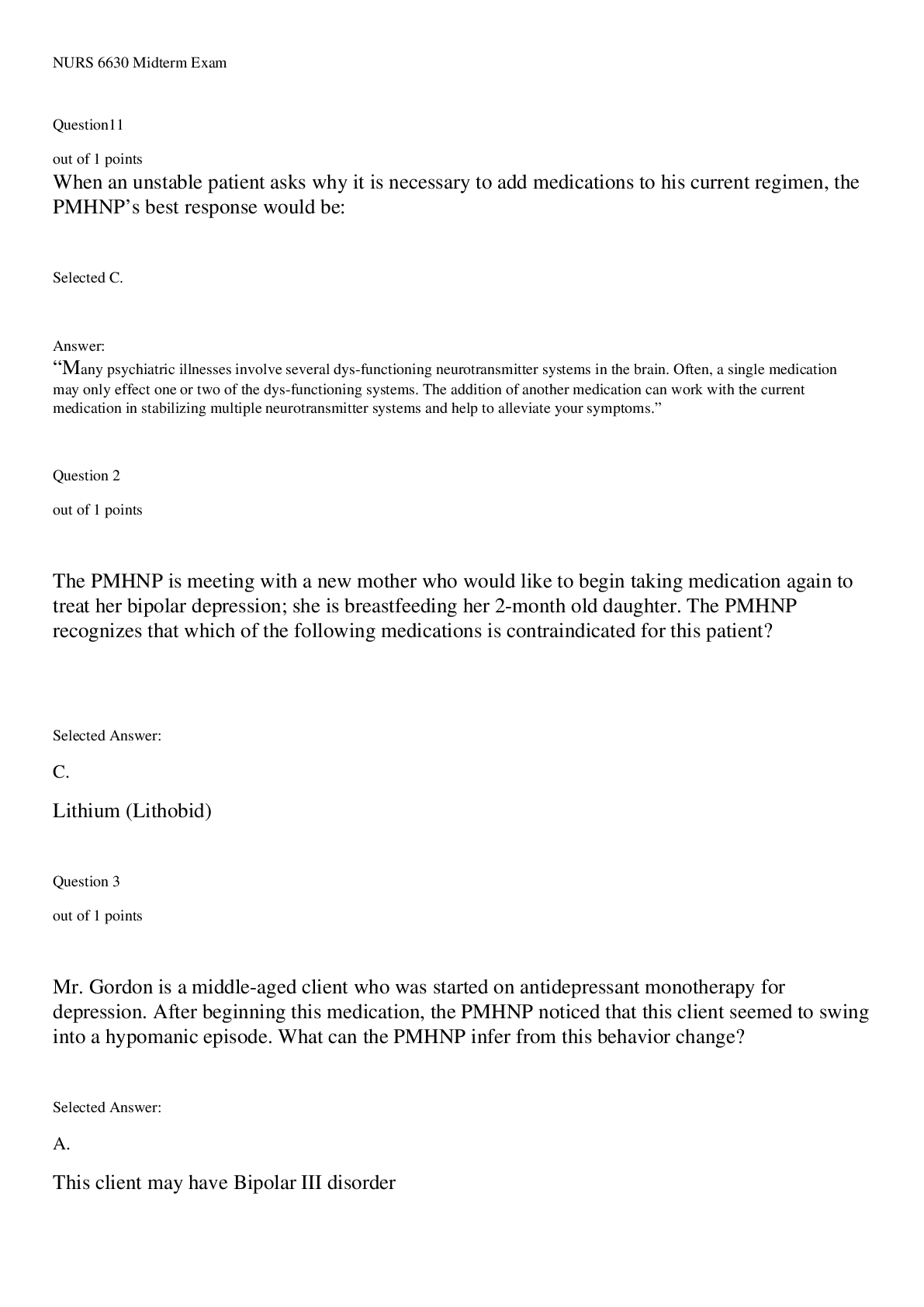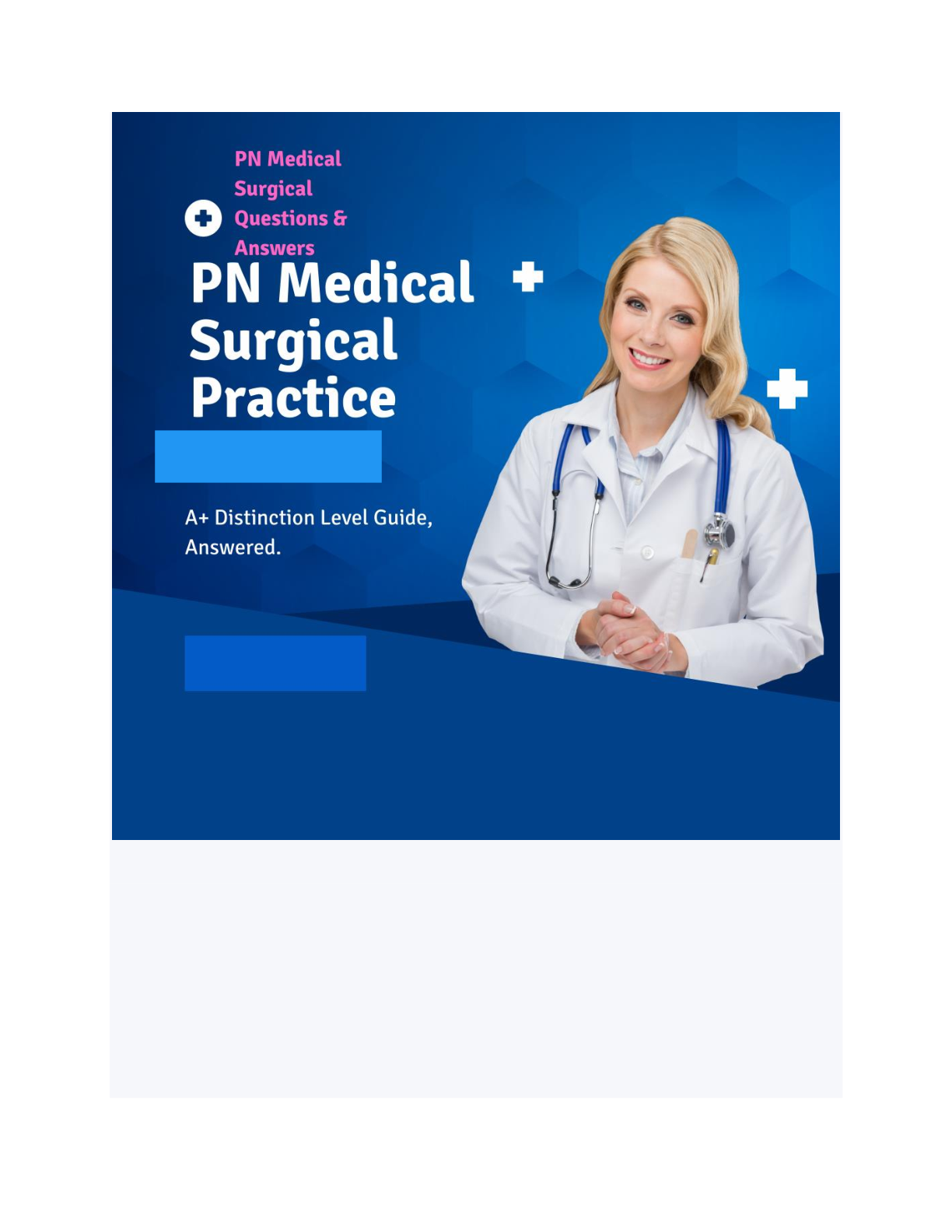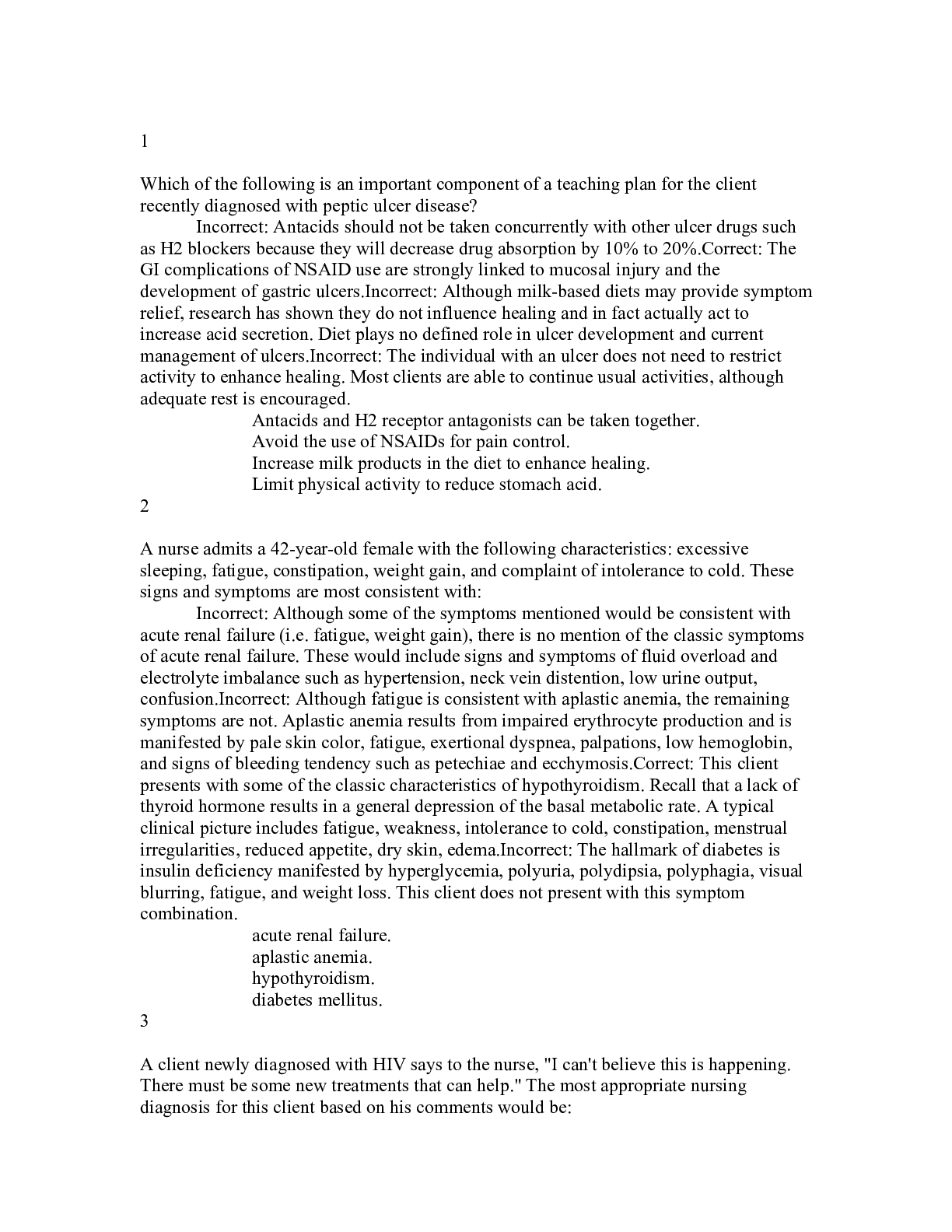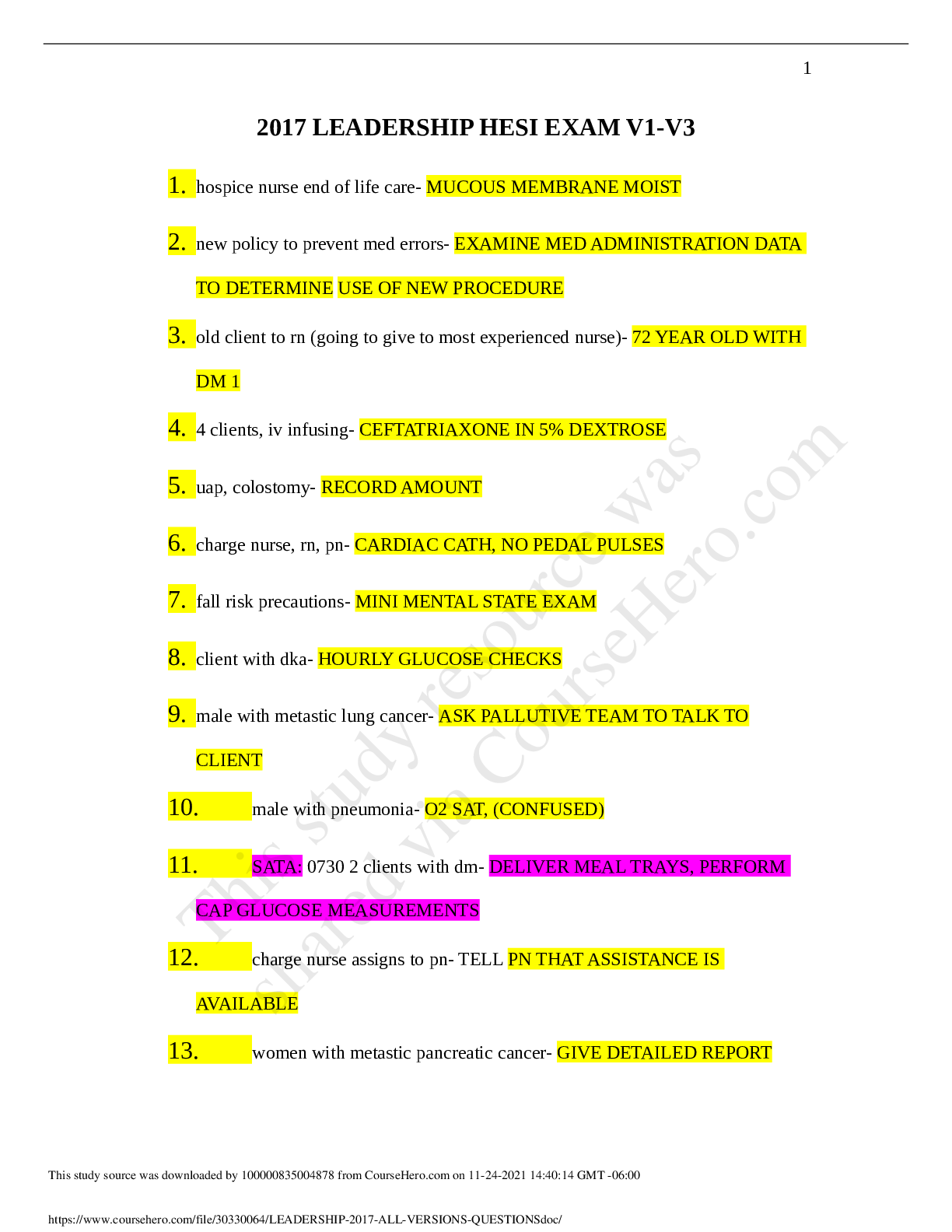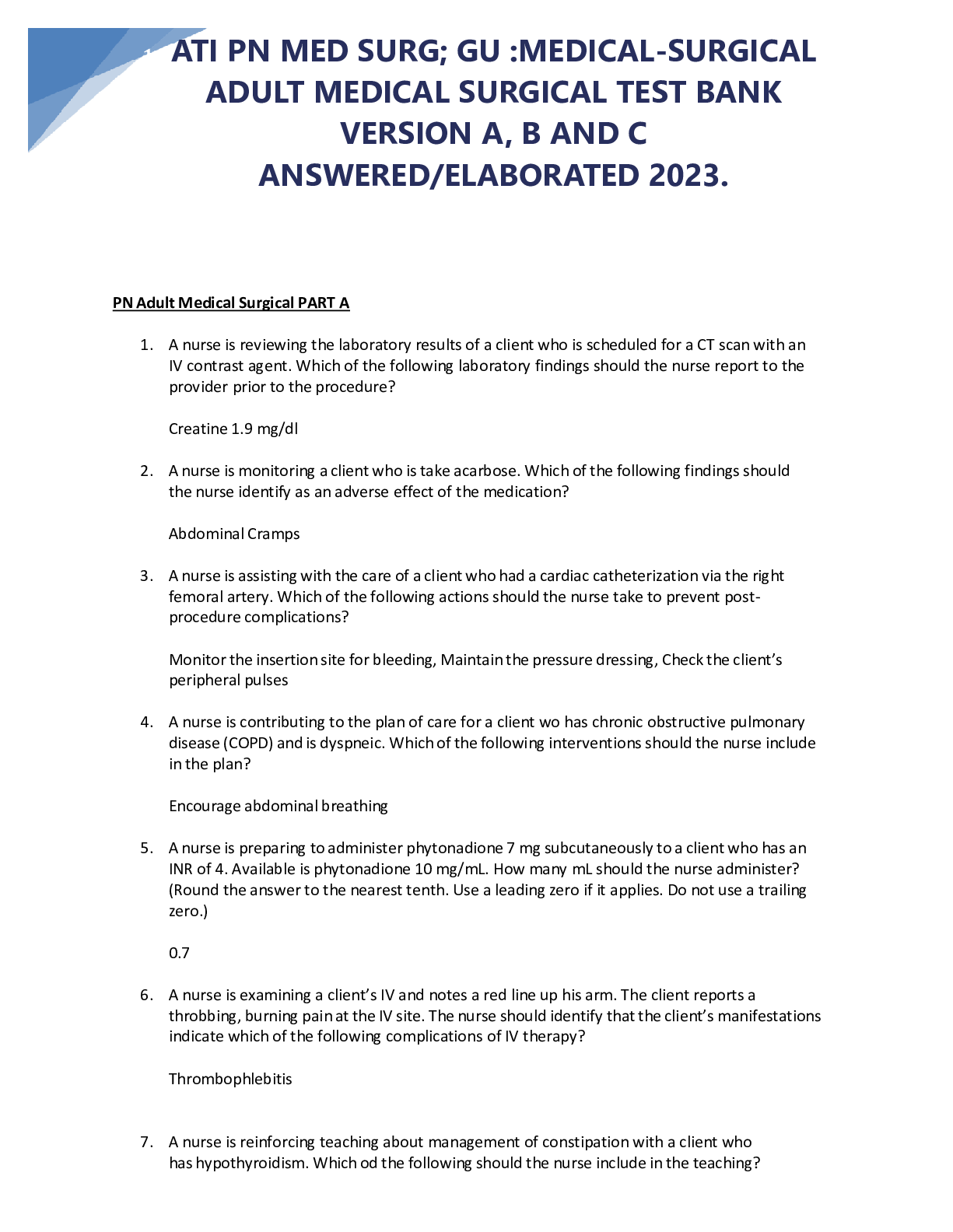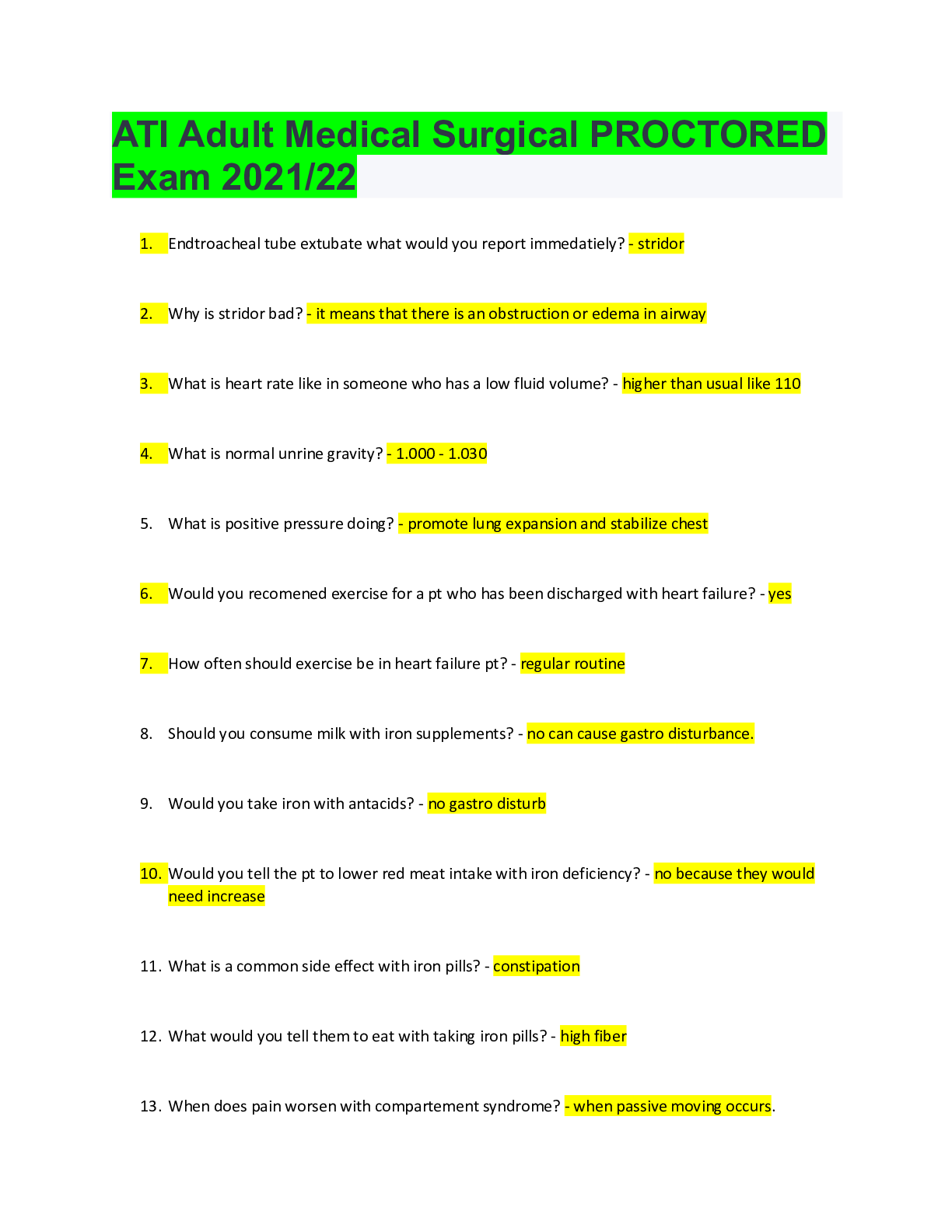HESI RN EVOLVE MEDICAL-SURGICAL ASSIGNMENT EXAM
1.
Which assessment is most important for the nurse to perform on a client who is hospitalized for Guillain-Barre syndrome that is rapidly progressing?
•Respiratory effo
...
HESI RN EVOLVE MEDICAL-SURGICAL ASSIGNMENT EXAM
1.
Which assessment is most important for the nurse to perform on a client who is hospitalized for Guillain-Barre syndrome that is rapidly progressing?
•Respiratory effort.
•Unsteady gait.
•Intensity of pain.
•Ability to eat.
Guillain-Barre syndrome causes paralysis or weakness that typically starts at the feet and progresses upwards. As the condition progresses, the nurse must ensure that the client is able to breathe effectively.
Heuther, Understanding Pathophysiology, 6th ed. p. 412
2.
A male client comes into the clinic with a history of penile discharge with painful, burning urination. Which action should the nurse implement?
•Collect a culture of the penile discharge.
•Palpate the inguinal lymph nodes gently.
•Observe for scrotal swelling and redness.
•Express the discharge to determine color.
Penile discharge with painful urination is commonly associated with gonorrhea. The nurse should collect a culture of the penile discharge to determine the cause of these symptoms. The cause must be determined or confirmed through culture to identify the organism and ensure effective treatment.
Jarvis Physical Examination and Health Assessment, 6th edition 3.
A client with history of atrial fibrillation is admitted to the telemetry unit with sudden
onset of shortness of breath. The nurse observes a new irregular heart rhythm and should perform which assessment at this time?
•Check for a pulse deficit.
•Palpate the apical impulse.
•Inspect jugular vein pulse.
•Examine for a carotid bruit.
A client with a past history of atrial fibrillation may return to that rhythm. Any signs of atrial fibrillation, such as sudden onset shortness of breath, requires further investigation. The nurse should assess this client for a pulse deficit because this condition occurs with atrial fibrillation.
Jarvis. (2016); Physical Examination and Health Assessment, (Chap 19) 7th ed., p. 481
4.
Which client should be further assessed for an ectopic pregnancy?
•A 24-year-old with shoulder and lower abdominal quadrant pain.
•A 33-year-old with intermittent lower abdominal cramping.
•A 20-year-old with fever and right lower abdominal colic.
•A 40-year-old with jaundice and right lower abdominal pain.
A 24-year-old with sudden onset of lower abdominal quadrant pain should be assessed for an ectopic pregnancy. The pain can also be referred to the shoulder and may be associated with vaginal bleeding.
Health Assessment for Nursing Practice, Wilson and Giddens. p.269
[Show More]
